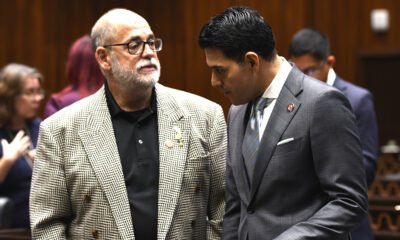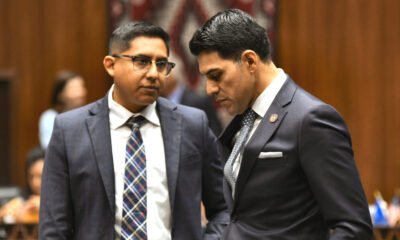Commentary
Beware the Sunset Review Trap: Ineffectiveness in a Unified Government Era

Arizona’s sunset review process aims to ensure accountability among state agencies. Recent discussions have raised concerns that these reviews may be politicized amid our current divided government. However, the more pressing issue could be found in the lack of effective oversight during periods of unified government.
Under divided government conditions, the Legislature tends to scrutinize agency performance more rigorously. This vigilance is evidenced by the serious consideration given to audit reports and active committee oversight. It serves to enhance transparency and operational efficiency within state agencies.
In contrast, when one political party dominates both the legislative and executive branches—as was the case during the Ducey administration—the sunset review process often becomes a mere formality, lacking substantial oversight. Legislative committees may overlook critical findings from agencies like the Arizona Auditor General’s Office.
The Auditor General has played a crucial role in highlighting agency shortcomings, with comprehensive reports exposing systemic failures. A notable example arose during the Ducey administration, where investigations revealed alarming delays in handling complaints within the Arizona Department of Health Services. The 2019 audit showed that 98% of high-risk complaints were reclassified to appear less severe, indicating a troubling manipulation of data.
Despite such serious findings, legislative responses at that time failed to address evident flaws, allowing issues to persist without rectification. This lack of accountability during unified government reflects a broader systemic problem. When legislative review committees are dominated by the governor’s party, crucial recommendations often fall on deaf ears.
On the other hand, a divided government can foster a more thorough examination of agency performance. Recently, discussions regarding agencies set to expire in 2025 illustrate how such political divisions lead to a more critical stance on underperforming agencies. This scrutiny ultimately serves the public interest, ensuring that agencies are accountable for their actions.
Critics equally voice concerns about the sunset review process being potentially weaponized under the current division of power. While such concerns are valid, they often overshadow the perilous lack of oversight that can occur under unified governance.
To improve the sunset review process and maintain its effectiveness despite the political makeup, Arizona may benefit from structural reforms. Implementing mandatory hearings on Auditor General findings and establishing independent oversight boards could enhance accountability. Additionally, increasing funding for the Auditor General would bolster their capacity to conduct audits.
Such initiatives would create a reliable framework for ensuring agencies meet established performance standards, irrespective of political alignment. The real challenge lies not in harsh reviews during divided government but rather in the potential for rubber-stamping during periods of unified control, as observed in the past.
Robust oversight is vital to prevent agencies from neglecting their responsibilities to the public. Prioritizing meaningful accountability should transcend political boundaries, reinforcing the need to protect public interests, regardless of who holds political power.
Will Humble, the current executive director of the Arizona Public Health Association, previously held the position of director of the Arizona Department of Health Services from 2009 to 2015.


















